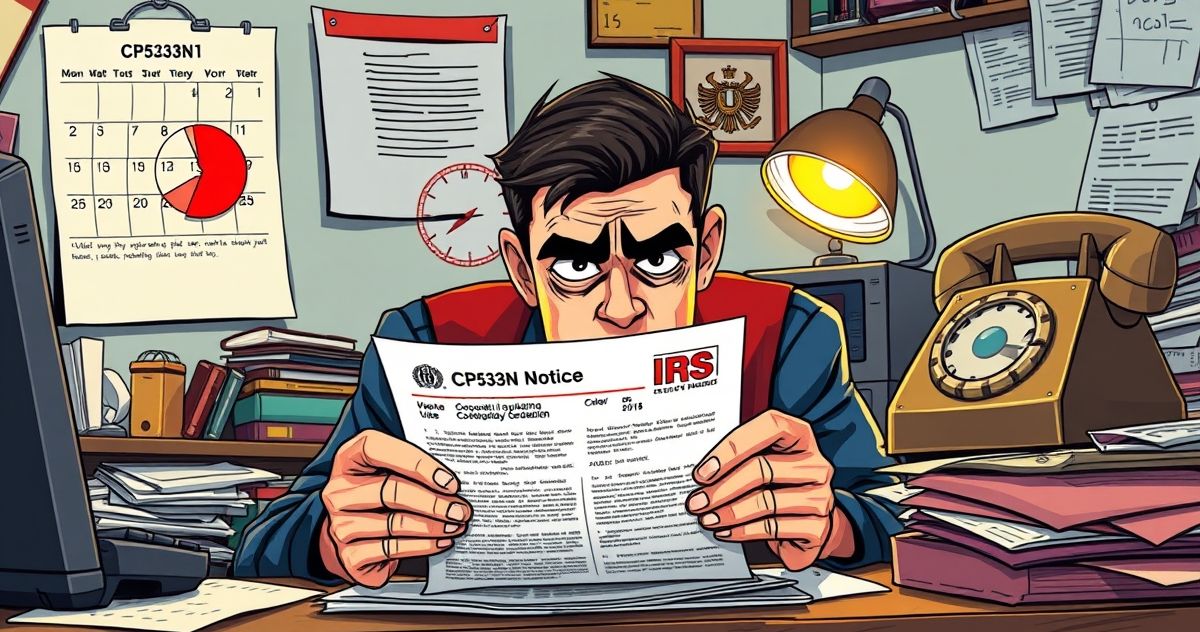Understanding the CP523N Notice
The CP523N Notice is a critical communication from the IRS, informing taxpayers participating in an installment agreement about potential default scenarios. This notice alerts the taxpayer that their installment agreement faces termination due to missed payments or failure to comply with other agreed-upon terms. Recognizing and acting on this notice is vital to ensure continued compliance and prevent escalating penalties or enforcement actions.
Key Features of the CP523N Notice
The CP523N Notice primarily serves as a warning that the current installment agreement is jeopardized. This notice typically includes essential information such as:
- Reason for the Notice: Clearly outlines why the installment agreement is at risk, often due to missed payments or failure to adhere to other conditions of the agreement.
- Current Status: Lists the current balance and any discrepancies in payment history or compliance with the agreement terms.
- Deadlines: Specifies the deadline by which the taxpayer must act to prevent termination of the agreement.
- Actions Required: Details the necessary steps to rectify the situation, such as making overdue payments or contacting the IRS to discuss resolution options.
Importance of the CP523N Notice
Understanding the significance of the CP523N Notice is essential for several reasons. First, it helps taxpayers avoid substantial penalties that can accrue following default on an installment agreement. By addressing the notice promptly, taxpayers can maintain their installment plan, which often includes manageable monthly payments to settle outstanding tax debts.
Additionally, responding to the CP523N Notice can help prevent more severe IRS actions, such as levies or liens, that can affect personal and financial circumstances significantly. This proactive approach is vital for maintaining financial stability and creditworthiness.
Filing and Compliance Requirements
To address a CP523N Notice effectively, taxpayers must meet specific filing and compliance requirements:
- Payment of Outstanding Amounts: Make any missed payments by the indicated deadline to bring the installment agreement current.
- Communication: If unable to make the necessary payments, taxpayers should contact the IRS immediately to discuss possible options like adjusting payment terms or renegotiating the installment agreement.
- Accurate Record Keeping: Maintain meticulous records of all payments and correspondence with the IRS to ensure no discrepancies arise in future dealings.
Consequences for Non-Compliance
Failure to respond adequately to a CP523N Notice can result in serious ramifications, including:
- Termination of the Installment Agreement: Defaulting on the agreement can lead to its termination, making the entire tax debt immediately due.
- Accrual of Penalties and Interest: Additional penalties and interest will accrue on the unpaid balance, increasing the overall amount owed.
- IRS Enforcement Actions: The IRS may pursue aggressive collection actions, such as bank levies or wage garnishments, contributing to further financial strain.
Steps to Resolve CP523N Issues
The path to resolving issues highlighted in a CP523N Notice begins with swift and decisive action. Here are the recommended steps:
- Immediate Payment: If possible, make any overdue payments immediately to reinstate the agreement and avoid cancellation.
- Contact the IRS: If making the payment is not immediately feasible, contact the IRS using the contact information provided on the notice. Discuss available options, such as payment plan adjustments.
- Professional Advice: Consider seeking help from a tax professional or advisor who can negotiate with the IRS on your behalf and help structure an acceptable resolution.
Significance in Tax Resolution and Financial Compliance
The CP523N Notice holds considerable importance in both tax resolution and maintaining broader financial compliance. Installment agreements are crucial financial tools enabling taxpayers to pay off debts in manageable installments. By addressing the CP523N Notice promptly, taxpayers can prevent increased burdens that disrupt financial planning and security. It’s also a reminder to remain proactive in managing tax obligations, reducing the risk of future conflicts with the IRS.
By fostering timely communication and payment habits, taxpayers not only comply with federal obligations but also ensure their financial health remains stable and robust. Successfully managing a CP523N Notice can restore equilibrium in a taxpayer’s financial landscape, allowing them to focus on other critical aspects of personal and financial growth.

